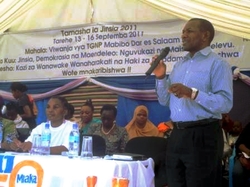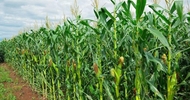
“The country has unbearable land conflicts,” Mr Myenzi said. “This calls for concrete remedial actions.”
Concern over rising number of land disputes in Tanzania
By Ludger Kasumuni
According to the Land Resources and Research Institute director, there are five land disputes daily, three of which involve powerful investors.
Land conflicts pitting poor villagers against powerful investors now number more than 1,000 a year, according to research findings by Land Resources and Research Institute (HakiArdhi).
On average, there are five land disputes daily in the country and three involve powerful investors, says HakiArdhi Executive Director Yefred Myenzi.
The research, based largely on media coverage, shows that there were 1,825 general land disputes in a year, out of which 1,095 involved powerful investors. “The country has unbearable land conflicts,” Mr Myenzi said. “This calls for concrete remedial actions.”
Conducted in December last year, the preliminary research covered 16 districts.
The cases in question comprise disputes filed in the courts and land tribunals.
According to Mr Myenzi, the rise in land disputes is the result of a rapid rise in land use without a corresponding increase in land use plans. Outdated land laws and the slow pace of issuing land titles are also to blame.
Tanzania has an estimated population of 42 million people and 12,000 villages but the government issued only 157,968 land titles for villagers in the 2011/12 Budget, according to HakiArdhi. Only 0.02 per cent of Tanzanians have traditional land ownership titles.
It is misleading to argue that Tanzania has excessive or enough arable land, he argued, because simple arithmetic shows that one person cannot own more than two acres if you divide the total land area by the population size.
Mr Myenzi added: “We do not have enough land resources for every Tanzanian. In fact, only a few own huge land resources. What is happening now is that the well-to-do from within and outside the country are in a land grabbing race.”
The rise in land disputes has been attributed to the inability of land tribunals to settle conflicts, especially ward tribunals. Villagers also do not know their land rights and cannot, therefore, press for justice. Poor town planning has also contributed to the problem.
“Most of land contracts in rural areas are biased against villagers because the decisions are made illegally and nobody is held accountable for wrong decisions,” he said.
Under the 1999 Village Land Act, the quorum for a ward land tribunal is 17 members, which is equal to two-thirds of all members, but this principle is regularly ignored.
One village reportedly sold 200 hectares to an investor in a decision made by 14 members. Some tribunals have also operated like the courts, charging land bidders fees ranging from Sh100, 000 to Sh150,000.
The rights of livestock keepers are not recognised under the current land policy and laws, Mr Myenzi said, leading to conflicts between farmers and nomadic pastoralists. Pastoralists kicked out of Ihefu are still homeless despite a 2006 plan to resettle them in Lindi Region. It is very expensive to pursue land cases in the courts.
The government has held back on implementing laws to establish land compensation funds for more than a decade and this has sparked many disputes and complaints among Tanzanians.
Proposals
Land experts are now recommending the allocation of more resources to the Ministry of Land and Human Settlements Development so it can update town plans and develop land use plans for all districts.
Other solutions include amending land laws, guarantees of security of tenure and changing the land tenure system so that titles do not exceed 25 years—with that right entrenched in the national Constitution. The government has also been urged to develop a coherent livestock development policy and educate the public on land rights. Climate change has also fuelled land conflicts













